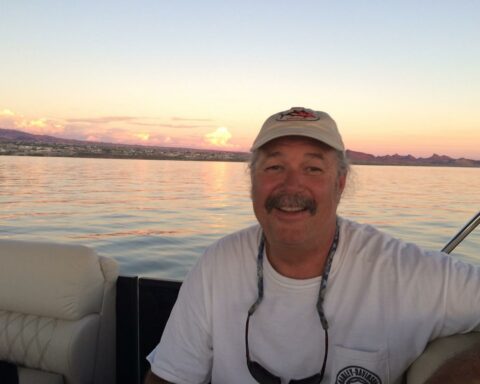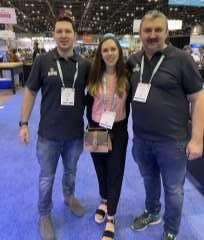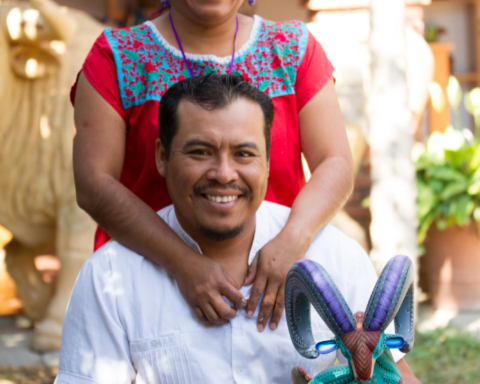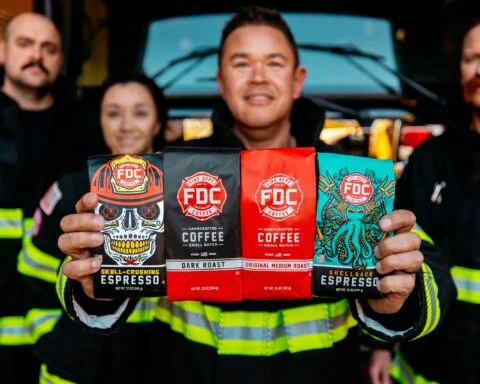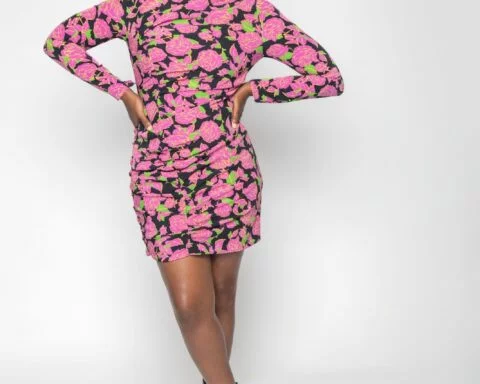By Lynn Power
I launched not just one, but two businesses in 2020: MASAMI, clean premium haircare, and Isle de Nature, a luxury bee-powered home fragrance. While Covid was clearly a challenge that we didn’t fully understand at the time, the upside of being in control of your own destiny has been worth it.

I spent my 30+ year career in the advertising industry. It was a great ride and I got a lot of satisfaction from my career. I was fortunate to be able to work on some of the world’s most iconic brands, like Hershey’s, American Express, and Gillette. But I learned over the years that the older you get, the less fun the job is (I think this is true for a number of industries). In 2018, I had worked my way up to become the CEO of J. Walter Thompson NY and I found myself spending all of my time on finance, HR, and legal issues — not the creative side of the business that I loved. After all, I got into advertising to leverage creativity as a business tool. But I had gotten quite far away from that kind of problem-solving. Now, all of my problem-solving involved putting out fires.
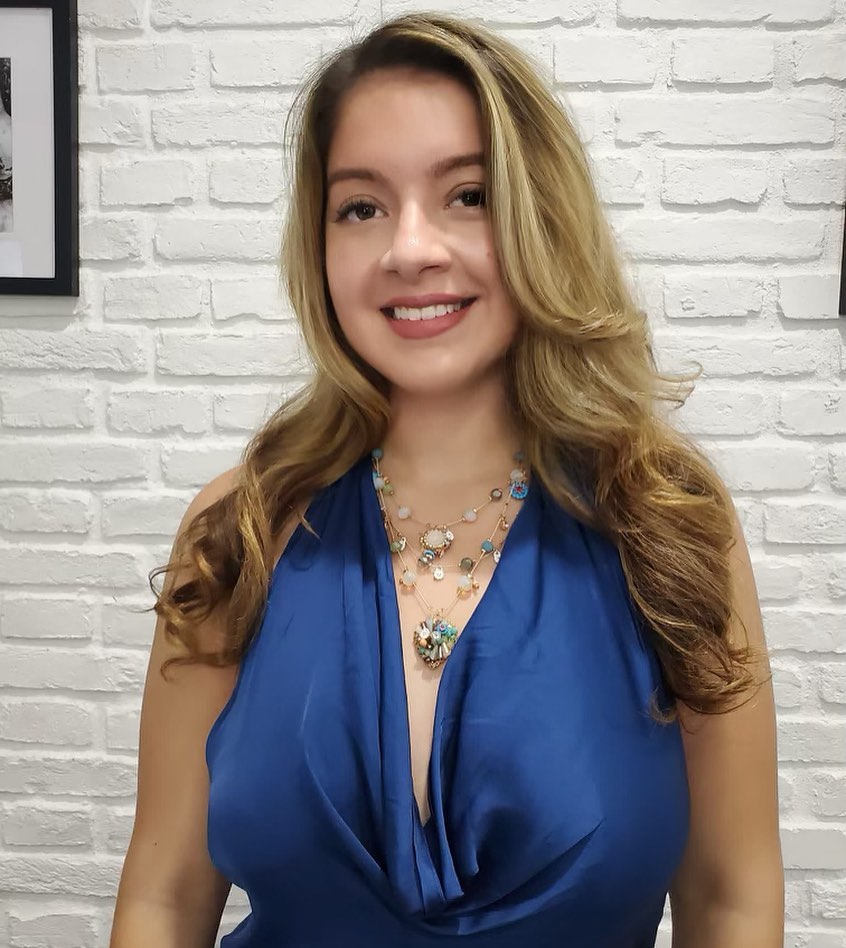
After some soul searching, I decided that I needed to take back control of my life. So, I left the industry that I loved. I launched a consulting business with a partner and we worked almost exclusively with startups. This was highly satisfying as I felt I could really make a difference for their businesses and I really enjoyed working directly with the founders and key decision-makers. But then, as sometimes happens, the universe intervened and I met my co-founder on MASAMI, James Hammett. James had also been working in advertising, but he had been “secretly” working on hair care formulations as a side gig for about 10 years. He had developed clean, super hydrating formulas with a Japanese ocean botanical called Mekabu, which he learned about from his Japanese husband, Masa. When I met James, the shampoo, conditioner, shine serum, and styling cream formulas were just about complete, but he needed help to commercialize the business. I loved the product and given my beauty background (I’ve worked on Clinique, L’Oreal, Vichy, Nexxus, and more), I recognized the opportunity to create high-performing clean hair care that’s all about weightless hydration (the number one unmet consumer need).
We decided to launch our business together in 2018 and MASAMI was born. From there, we developed the branding, the positioning, the values, the go-to-market strategy, our e-commerce strategy, our marketing plan, and more. Our preparation took about 18 months — not only did we have to make our products and packaging, but we also wanted to test our product among consumers. We were able to get great feedback from virtually every ethnicity and hair type which was validating. And we were off and running!
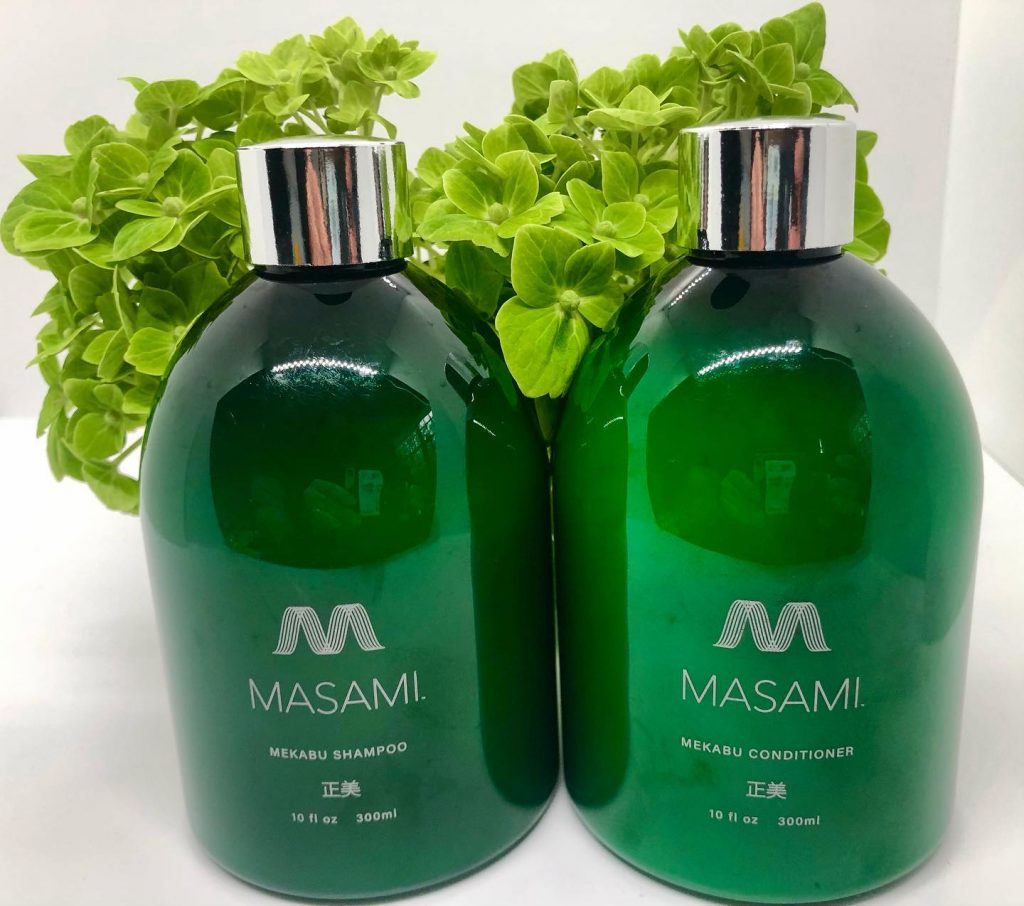
Fast forward to our launch in February 2020 at New York Fashion Week. We were the hair partner for two shows, Natori and Adalinda Fashion, which were both sold out. Only a few weeks later, the Covid lockdowns went into place and that was the first big challenge we (and every other brand that launched in 2020) dealt with. We had been planning on launching in several salons which now had their own struggles, so we pivoted to focus exclusively on our e-commerce business and content — things that we could control. Over the course of the past year, we’ve had additional challenges related to supply chain issues (we still have refill pouches sitting in a port in Chicago for 2 months without any signs of movement!). And consumer sentiment is constantly shifting as new challenges from Covid, weather disruptions and more are coming at us, so we’re fine-tuning the skill of flexibility. Learning how to recognize when you should pivot is a highly valuable skill.
But, the good news is that the past year has made us all a bit more aware of our health. Pretty much everyone understands the importance of self-care (even if we’re not always practicing it) so launching a brand that sits squarely in this space has given us some tailwinds. As consumers, we’re looking for healthier alternatives in virtually every category (including haircare) and at MASAMI, we also took the opportunity to lean into sustainability — launching large-size refillable bottles in May 2021. We believe that indie brands like ours can make a significant dent in reshaping consumerism and sustainable solutions. The more that we can build momentum around creating brands and products that are good for you and good for the environment, the big corporations will need to get on board.

If you’re thinking about launching a business, here are some tips that might help you.
- Network like crazy. You not only need to make sure you have a viable (and scalable) business idea, but you should invest time to proactively build out a network of advisors, mentors and peers, as this is one of the best ways to get feedback and momentum. The upside of this? You can start to network well before you quit your day job, and you’ll feel much more confident that you have the right plan in place when you launch. If you find it hard to network on your own, there are some easy platforms to help with this including Currnt (knowledge creation network that connects you with other subject matter experts) Lunchclub (free service to meet new connections) and Cirkel (intergenerational mentoring).
- Have a clear brand positioning and story. This is super important to cut through today’s “attention economy” (basically, we all have the attention span of goldfish these days). Take the time to define your North Star and your brand values, these will shape much of your future activity, including your content, your hires and more. People want to understand what makes your brand different, so think about how to clearly communicate this in as few words as possible. You can think about leveraging archetypes as well as a way to “shortcut” communications. And I’ve often found it useful to define your “enemy” — not a competitor necessarily, but a force that might prevent you from being successful. This will help you tighten your story and make your elevator pitch compelling.
- Don’t try to do everything yourself. It’s tempting to want to control costs and take on every role yourself, but there are likely a few skills that you will want (or need) to outsource. For us, we leverage Fiverr for design work. And we have a bookkeeper who has been a lifesaver. Many of us (especially women), think we need to master everything, but that mindset may just create fear and drag you down. You’re better off having a clear sense of your own superpowers (and your partner’s if you have one) and what things you don’t like to do — or just aren’t good at. This assessment will help you prioritize your own time and how to bring in outside help.
- Look for scrappy marketing opportunities. If you’re bootstrapped like us, you likely don’t have the budget for advertising or any paid support. But fortunately, there are a lot of things you can do to get awareness and engagement that don’t cost much, if any, money — including podcasts, blogs, partnerships, social media, giveaways, PR, live streaming and more. While some of them may not give you the immediate return on sales you’re looking for, don’t forget that content helps with your SEO. And podcasts are evergreen — meaning that often, listeners will stumble across one and listen to all of the past episodes. So don’t be afraid to experiment. We plant a lot of seeds and the ones that sprout get more water. The ones that don’t are deprioritized.
- Speaking of partnerships. . . They are a great way to grow your audience and find new customers. The key is aligning with like-minded brands who will attract a similar consumer to yours. We have had some amazing partnerships over the past year with other wellness, clean beauty and female founded brands like BalmLabs, Access70, Chrysmela, Romer Skincare and Impact Naturals — and this has been one of the best ways we’ve found to get traction efficiently. If you approach partnerships with a spirit of generosity vs. competition, you’ll find that everyone wins.
I hope these tips are helpful for you as you embark on your own entrepreneurial journey. I’d love to hear more about what has worked for you — please feel free to comment and share.
About Lynn:
Lynn Power spent much of her 30-year career running and transforming agency brands. Lynn has expertise in transforming organizations from top to bottom – including capabilities, organizational structure, talent, and culture. She recently left the big agency world to create MASAMI, a premium clean haircare brand that launched in February 2020, and Isle de Nature, a luxury bee-powered home fragrance, which launched in September 2020.
Prior to her entrepreneurial move, Lynn was CEO of J. Walter Thompson NY, responsible for the flagship office of WPP’s $1.5B iconic agency (the oldest advertising agency in the world).
Throughout her career, Lynn has had the great fortune of working on some of the world’s most well-known brands including LISTERINE, American Express, Clinique, Hershey’s, Pizza Hut and Wild Turkey. Lynn loves challenging the status quo and helping women find their voices.
- FDC – Giejo Magazine Article - July 29, 2023
- MoriMa Tea the – Chinese tea culture - April 26, 2023
- Missionary Position – Least Likely To Bring You To Climax - April 7, 2023


